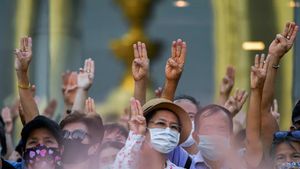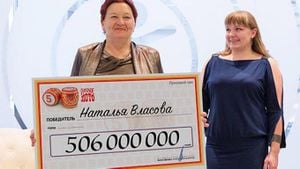The German Federal Election of 2025 is shaping up to be pivotal as political parties lay out their platforms aimed at addressing pressing social issues. Notably, the debate has intensified around the Alternative für Deutschland (AfD), with discussions surrounding whether or not to ban the party. Critics argue such measures might undermine democratic principles, stating the need to "protect democracy from being dismantled by its enemies using democratic means," highlighting the contention surrounding the AfD's controversial stances.
On the other hand, Die Linke—a left-wing political party—has made significant strides and is entering the election with renewed vigor. With leading figures like Heidi Reichinnek and Jan van Aken at the forefront of their campaign, the party is focusing on social justice reform and has garnered positive attention from polls showing their support increasing to around eight to nine percent. This marks their most substantial presence since the start of the current legislative term.
The core of Die Linke's program emphasizes social security reforms aimed at the elderly, the unemployed, and families receiving child benefits. They are advocating for notable increases to pensions to combat the growing pensions gap, pushing to raise the pension level to fifty-three percent and introduce a "solidarity minimum pension". This measure targets those with low incomes or periods of unemployment, ensuring support up to the poverty line, particularly for vulnerable groups such as caregivers and those raising children.
Further, the party strongly critiques the recent rise of the retirement age to sixty-seven years, claiming it poses undue burdens on individuals working arduous jobs. They state, "the current retirement system is shameful," underscoring the party's pledge to restore the retirement age to sixty-five and eliminate penalties for those who have worked for forty years. Notably, they seek to initiate broad reforms whereby all workers contribute to a collective pension insurance fund to improve sustainability.
Aside from pension reforms, Die Linke is advocating for the restructuring of the citizens' income—a social security payment—asserting the current regulation rates are insufficient. They aim to raise the monthly citizens' income to at least €1,400, highlighting the urgency of providing adequate support amid rising living costs, without punitive measures for recipients: "We believe poverty and unemployment are often the result of systematic issues, not individual failure," they state.
On February 15, 2025, shortly before the elections, Die Linke presented a comprehensive relief package promising significant financial relief for low- and middle-income earners. This plan includes raising the minimum wage to €15, eliminating fees for early childhood education, and rendering school meals free. The Germany ticket—which provides discounts on public transport—is proposed to drop to €9, assisting families and making public transport more accessible.
Perhaps one of the most ambitious components of their platform is the introduction of the child benefit scheme, aimed at reducing child poverty. This structure includes monthly payments of €379 for each child, incremental support for children from low-income households, and provisions for covering actual housing costs. Such measures reflect Die Linke's commitment to ensuring every child has equal opportunities for success, regardless of socioeconomic background.
To finance their extensive proposals, the party has urged for the abolition of the debt brake, which currently restricts public borrowing. They propose adopting what they call the "Golden Rule" allowing for investments financed through loans, citing the need for substantial financial commitments—around €600 billion—over the next decade. They argue this investment is necessary for improving Germany's infrastructure and social programs, primarily education and public housing.
Die Linke estimates these reforms could yield additional annual revenues of approximately €18 billion via various measures including property taxes and community financing reforms. By targeting wealth distribution and ensuring equitable social policies, the party hopes to create systems where everyone benefits, not just those siting comfortably at the top.
Meanwhile, the AfD's rising presence brings another layer of complexity to the 2025 elections. Their policies, particularly on energy, social issues, and economic perspectives, continue to be controversial, fostering significant debate over their role within Germany's political framework. Proponents of the AfD argue for their positions, urging to view them as legitimate expressions of conservative values and concerns, especially amid current European challenges.
With the 2025 German Federal Election approaching, voters are faced with stark choices reflective of diverging ideologies. On one hand, there are calls for radical changes to social justice and welfare systems from Die Linke, offering comprehensive strategies to uplift society's most vulnerable. On the other, the AfD's unyielding perspectives invite substantial scrutiny as the nation grapples with the consequences of shifting political dynamics. The upcoming election will undoubtedly serve as a momentous opportunity for German citizens to voice their vision for the future of their country.



